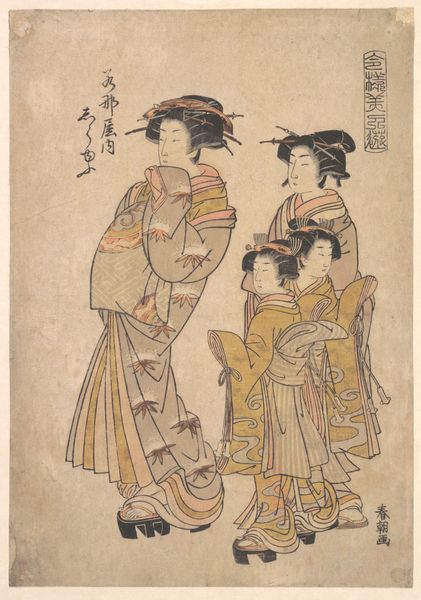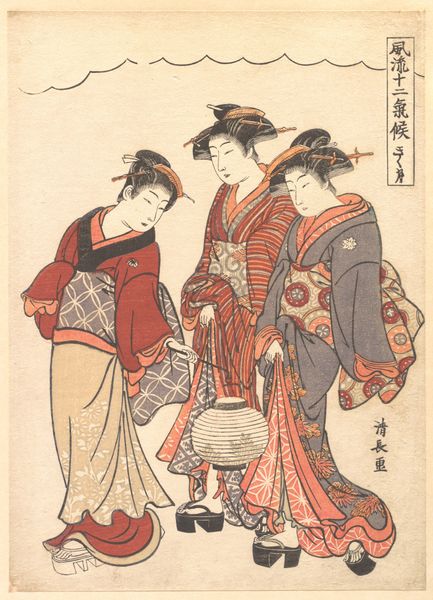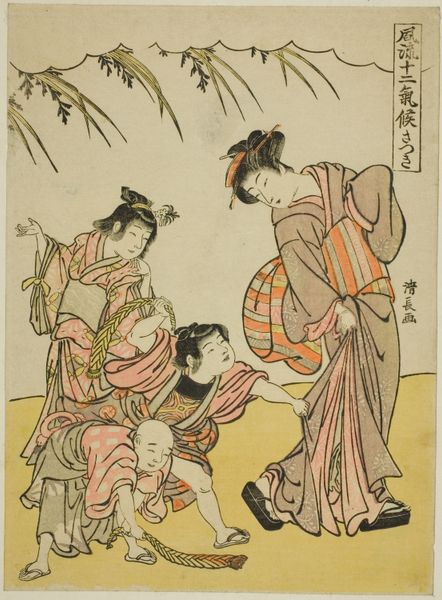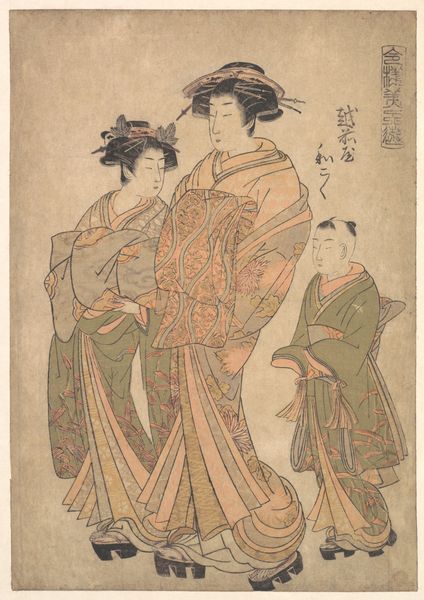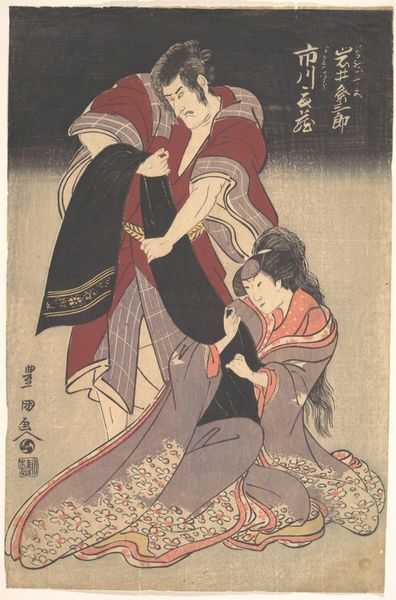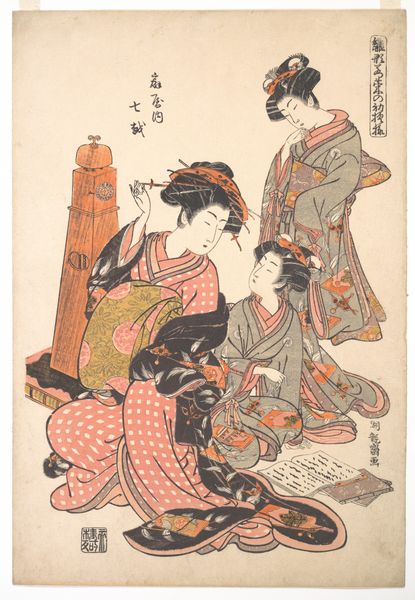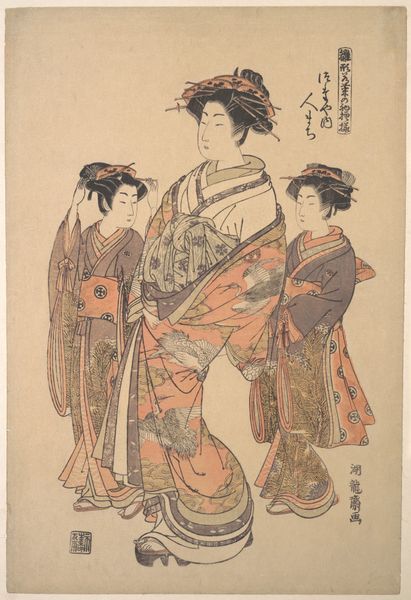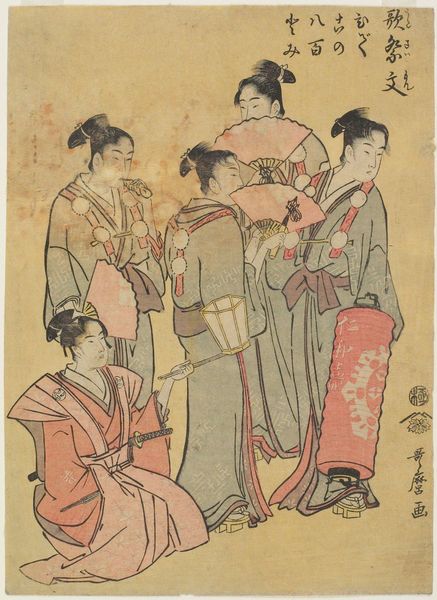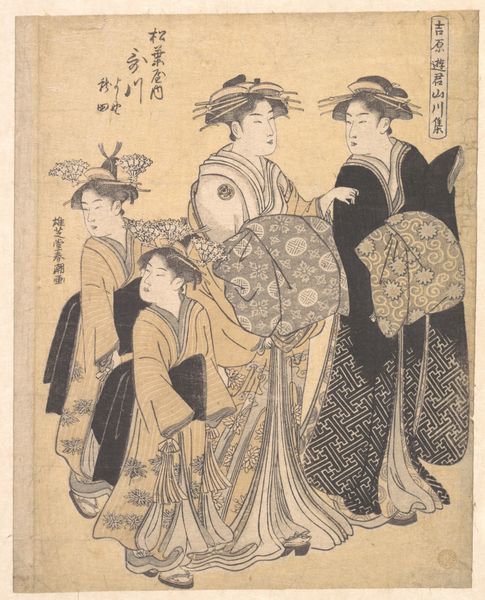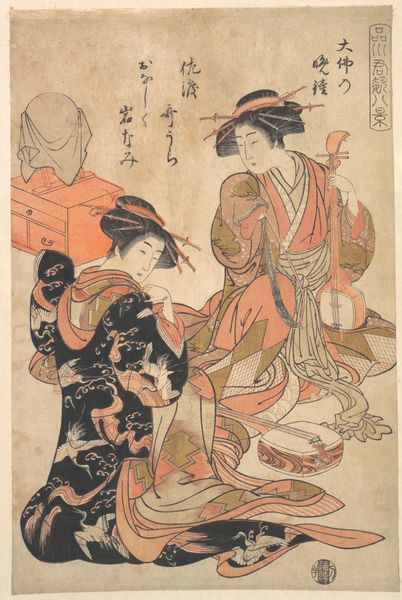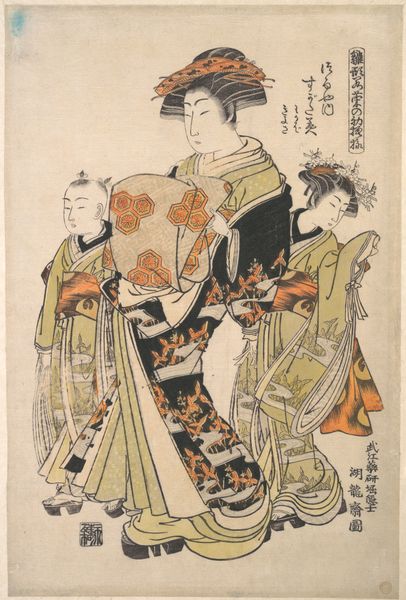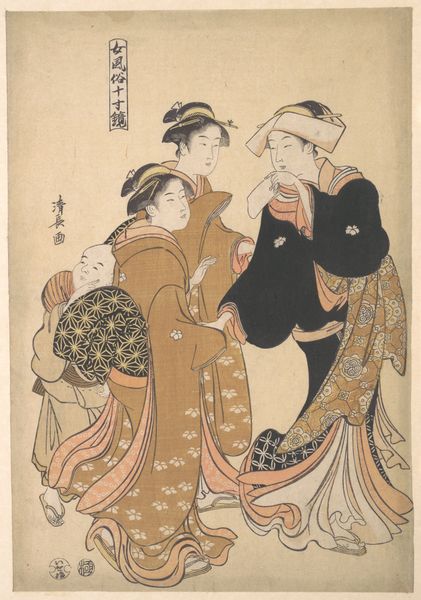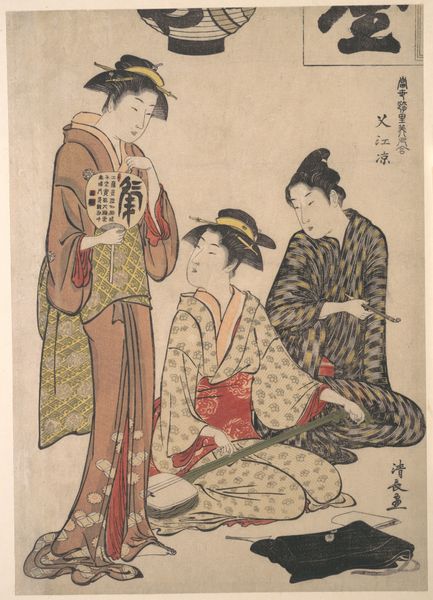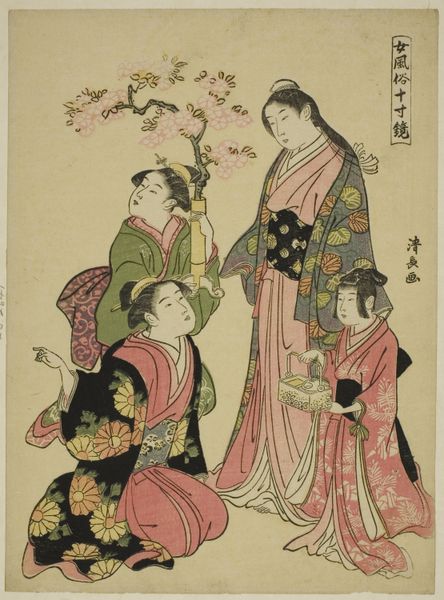
The Courtesan Shiratama of the Tamaya Brothel, from the series “A Pat-tern Book of the Year’s First Designs, Fresh as Spring Herbs” (“Hinagata wakana hatsu moyō”) 1777 - 1778
0:00
0:00
print, woodblock-print
#
portrait
# print
#
asian-art
#
ukiyo-e
#
figuration
#
woodblock-print
#
genre-painting
Dimensions: H. 15 1/4 in. (38.7 cm); W. 10 1/2 in. (26.7 cm)
Copyright: Public Domain
Isoda Koryūsai created this woodblock print of the Courtesan Shiratama in 18th-century Japan, a time when the floating world of pleasure districts offered an escape from rigid social norms. Here, Shiratama, a high-ranking courtesan, is depicted with two young attendants, likely on her way to an assignation. The print is part of a series intended to showcase the latest fashion trends. What’s particularly striking is the representation of women and their place in society. While seemingly celebrating the beauty and status of courtesans, these images also reflect the complex realities of women whose livelihoods depended on the male gaze and the negotiation of social hierarchies. Consider the artist’s own journey: Koryūsai, a former samurai, entered this world, suggesting a personal connection or fascination with the lives of these women. This work invites us to reflect on the intersections of gender, class, and desire in shaping the narratives of women and the artist himself in Edo period Japan.
Comments
No comments
Be the first to comment and join the conversation on the ultimate creative platform.
